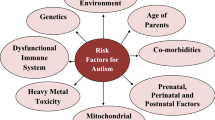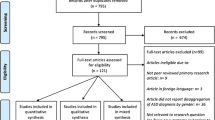Abstract
Fragile X syndrome (FXS) is the most common form of inherited intellectual disability. However, genetic testing protocols and genetic counseling guidelines for FXS are not yet established in mainland China. In the present study, we conducted a comprehensive analysis using a self-administered questionnaire among students at the Xiangya medical school to investigate their attitude towards genetic testing and counseling issues of FXS. We have gained a general understanding of the attitudes of medical students towards these FXS issues in China. This information is of immense importance to develop appropriate genetic tests and to train counselors for FXS. As the medical school students surveyed are prospective physicians who will be a part of the Chinese health system, our survey was focused on the basic knowledge of FXS, population-based FXS screening, confidentiality and reproductive options for mutation carriers. The study demonstrated that only less than one third of the participants had heard about FXS. 94.6 % of participants were in favor of FXS screening for women in their reproductive age who had a genetic history of FXS. Furthermore, only half of the participants would inform their families about their genetic status in case of positive test results, and more than half of the participants supported natural conception and prenatal diagnosis for FXS mutation carriers. Additional findings and research implications are also discussed. This survey targeting potential doctors provides important information for the development of FXS genetic test and counselor training for the Chinese health system.
Similar content being viewed by others
References
Abad-Perotín, R., Asúnsolo-Del Barco, Á., & Silva-Mato, A. (2011). A survey of ethical and professional challenges experienced by Spanish health-care professionals that provide genetic counseling services. Journal of Genetic Counseling, 21(1), 85–100.
Acharya, K., & Ross, L. F. (2009). Fragile X screening: attitudes of genetic health professionals. American Journal of Medical Genetics Part A, 149A(4), 626–632.
Ahmed, S., Hewison, J., Green, J. M., Cuckle, H. S., Hirst, J., & Thornton, J. G. (2008). Decisions about testing and termination of pregnancy for different fetal conditions: a qualitative study of European White and Pakistani mothers of affected children. Journal of Genetic Counseling, 17(6), 560–572.
Anido, A., Carlson, L. M., Taft, L., & Sherman, S. L. (2005). Women’s attitudes toward testing for fragile X carrier status: a qualitative analysis. Journal of Genetic Counseling, 14(4), 295–306.
Anido, A., Carlson, L. M., & Sherman, S. L. (2007). Attitudes toward fragile X mutation carrier testing from women identified in a general population survey. Journal of Genetic Counseling, 16(1), 97–104.
Bailey, D. B., Jr., Skinner, D., Davis, A. M., Whitmarsh, I., & Powell, C. (2008). Ethical, legal, and social concerns about expanded newborn screening: fragile X syndrome as a prototype for emerging issues. Pediatrics, 121(3), e693–e704.
Bankole, A., Singh, S., & Haas, T. (1998). Reasons why women have induced abortions: evidence from 27 countries. International Family Planning Perspectives, 24(3), 117–127. 152.
Bourgeois, J. A., Coffey, S. M., Rivera, S. M., Hessl, D., Gane, L. W., Tassone, F., et al. (2009). A review of fragile X premutation disorders: expanding the psychiatric perspective. Journal of Clinical Psychiatry, 70(6), 852–862.
Bower, M. A., Veach, P. M., Bartels, D. M., & LeRoy, B. S. (2002). A survey of genetic counselors’ strategies for addressing ethical and professional challenges in practice. Journal of Genetic Counseling, 11(3), 163–186.
Chan, Y. K. (1999).Reserve and intimacy: Privacy states extending across the family boundary. Indicators of social development, 133–157.
Chan, K. B. (2012). International Handbook of Chinese Families. 454–464.
Curtis, G., Dennis, N., & MacPherson, J. (1994). The impact of genetic counseling on females in fragile X families. Journal of Medical Genetics, 31(12), 950–952.
de Vries, B. B. A., van den Boer-van, H. M. A., Niermeijer, M., & Tibben, A. (1999). Dilemmas in counseling females with the fragile X syndrome. Journal of Medical Genetics, 36(2), 167–170.
Finucane, B., Abrams, L., Cronister, A., Archibald, A. D., Bennett, R. L., & McConkie-Rosell, A. (2012). Genetic counseling and testing for FMR1 gene mutations: practice guidelines of the national society of genetic counselors. Journal of Genetic Counseling, 21(6), 752–760.
Harris, S. W., Hessl, D., Goodlin-Jones, B., et al. (2008). Autism profiles of males with fragile X syndrome. Am J Mental Retardation, 113(6), 427–438.
He, M., & Li, W. (2007). China genetic counseling network (CGCN): a website on genetic counseling and genetic education). Hereditas, 29(3), 381–384.
Hesketh, T., Lu, L., & Xing, Z. W. (2005). The effect of China’s one-child family policy after 25 years. The New England Journal of Medicine, 353(11), 1171–1176.
Hiraki, S., Ormond, K. E., Kim, K., & Ross, L. F. (2006). Attitudes of genetic counselors towards expanding newborn screening and offering predictive genetic testing to children. American Journal of Medical Genetics Part A, 140(21), 2312–2319.
Huang, J. T., Kuo, C. C., & Kao, A. P. (2003). The inequality of regional economic development in China between 1991 and 2001. Journal of Chinese Economic and Business Studies, 1(3), 273–285.
Jacquemont, S., Hagerman, R. J., Hagerman, P. J., & Leehey, M. A. (2007). Fragile-X syndrome and fragile X-associated tremor/ataxia syndrome: two faces of FMR1. Lancet Neurol., 6(1), 45–55.
Lei, C., Wang, Y., Shackelford, T. K., & Buss, D. M. (2011). Chinese mate preferences: Cultural evolution and continuity across a quarter century. Personality and Individual Differences, 50, 678–683.
Lieberman, S., Zuckerman, S., Levy-Lahad, E., & Altarescu, G. (2011). Conflicts regarding genetic counseling for fragile X syndrome screening: a survey of clinical geneticists and genetic counselors in Israel. American Journal of Medical Genetics Part A, 155A(9), 2154–2160.
McConkie-Rosell, A., Finucane, B., Cronister, A., Abrams, L., Bennett, R. L., & Pettersen, B. J. (2005). Genetic counseling for fragile x syndrome: updated recommendations of the national society of genetic counselors. Journal of Genetic Counseling, 14(4), 249–270. 1.
McConkie-Rosell, A., Spiridigliozzi, G. A., Melvin, E., Dawson, D. V., & Lachiewicz, A. M. (2008). Living with genetic risk: effect on adolescent self-concept. American Journal of Medical Genetics Part C, Seminars in Medical Genetics, 148C(1), 56–69.
McConkie-Rosell, A., Del Giorno, J., & Heise, E. M. (2011). Communication of genetic risk information to daughters in families with fragile X syndrome: the parent’s perspective. Journal of Genetic Counseling, 20(1), 58–69.
McConkie-Rosell, A., Heise, E. M., & Spiridigliozzi, G. A. (2012). Influence of genetic risk information on parental role identity in adolescent girls and young women from families with fragile X syndrome. Journal of Genetic Counseling, 21(1), 59–71.
Meryash, D. L. (1992). Characteristics of fragile X relatives with different attitudes toward terminating an affected pregnancy. American Journal on Mental Retardation, 96(5), 528–535.
Meryash, D. L., & Abuelo, D. (1988). Counseling needs and attitudes toward prenatal diagnosis and abortion in fragile-X families. Clinical Genetics, 33(5), 349–355.
Miller, G. (2006). Biomedical research-Fragile X’s unwelcome relative. Science, 312(5773), 518–521.
Platteau, P., Sermon, K., Seneca, S., Van Steirteghem, A., Devroey, P., & Liebaers, I. (2002). Preimplantation genetic diagnosis for fragile X syndrome: difficult but not impossible. Human Reproduction, 17(11), 2l807–2l812.
Wang, T., Bray, S. M., & Warren, S. T. (2012). New perspectives on the biology of fragile X syndrome. Curr Opin Genet Dev, 22(3), 256–263.
Zhang, Z. Y., & Zhang, N. (2006). Current genetic counseling of China. Journal of Peking University: Health Sciences, 38(1), 33–34.
Zhang, H., Zhu, Y. P., & Luo, J. B. (2012). Status and problems of genetic counseling in China. Chinese Journal of Birth Health and Heredity, 20(2), 136.
Acknowledgments
We thank Prof. Lingqian Wu in the State Key Lab of Medical Genetics of Central South University and Prof. Hua Wang of Women and Child Health Hospital in Hunan, for their suggestion and advice in the manuscript.
This study was approved by the Ethics Committee of State Key Laboratory of Medical Genetics, Central South University; Study number 2012120801.
Funding
This work was supported in part by National Natural Science Foundation of China (Grant number: 81071028, 81172513), Program for New Century Excellent Talents (grant number: 7603230006) and the National Key Basic Research Program of China (Grant number: 2012CB944600).
Author information
Authors and Affiliations
Corresponding author
Electronic supplementary material
Below is the link to the electronic supplementary material.
ESM 1
(DOCX 18 kb)
Rights and permissions
About this article
Cite this article
Li, J., Huang, W., Luo, S. et al. Attitude of Medical School Students in China Towards Genetic Testing and Counseling Issues in FXS. J Genet Counsel 22, 733–740 (2013). https://doi.org/10.1007/s10897-013-9634-y
Received:
Accepted:
Published:
Issue Date:
DOI: https://doi.org/10.1007/s10897-013-9634-y




